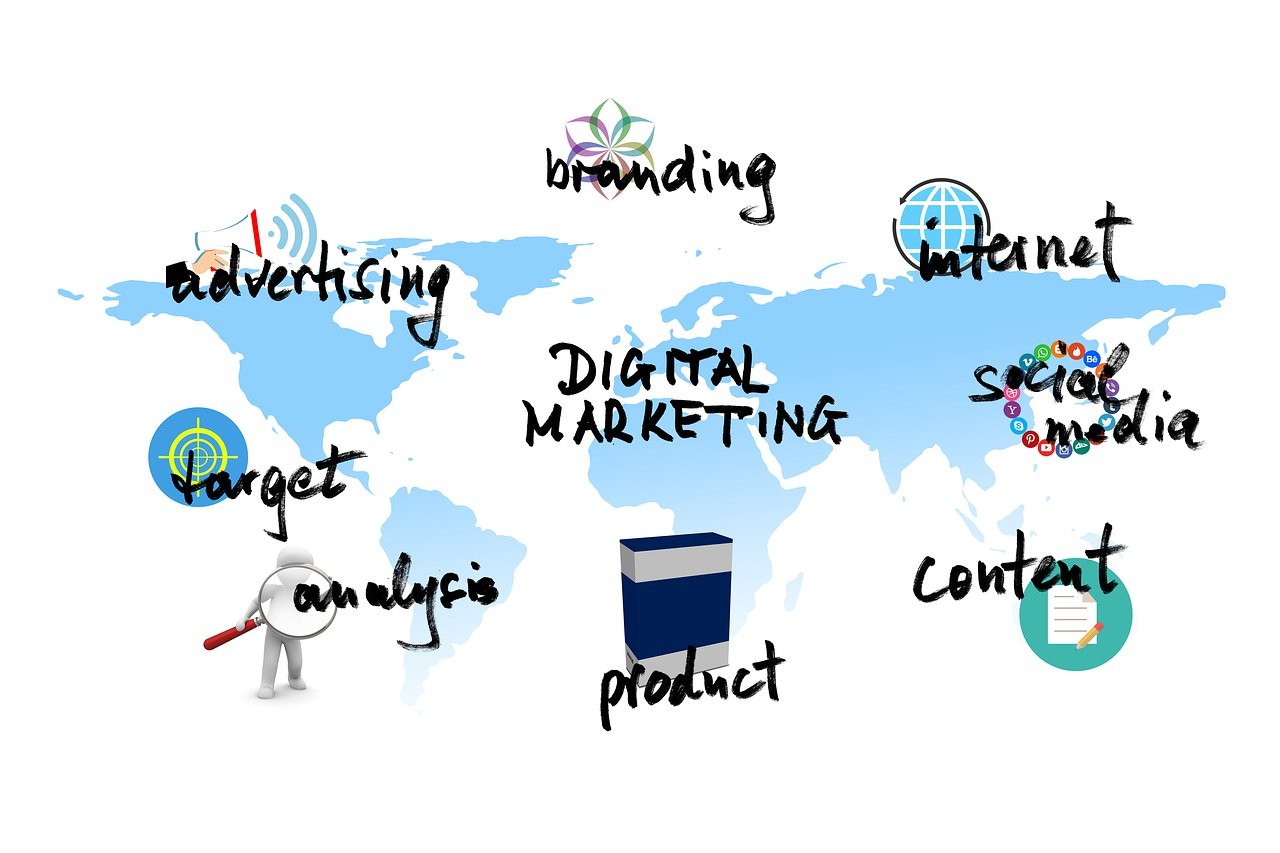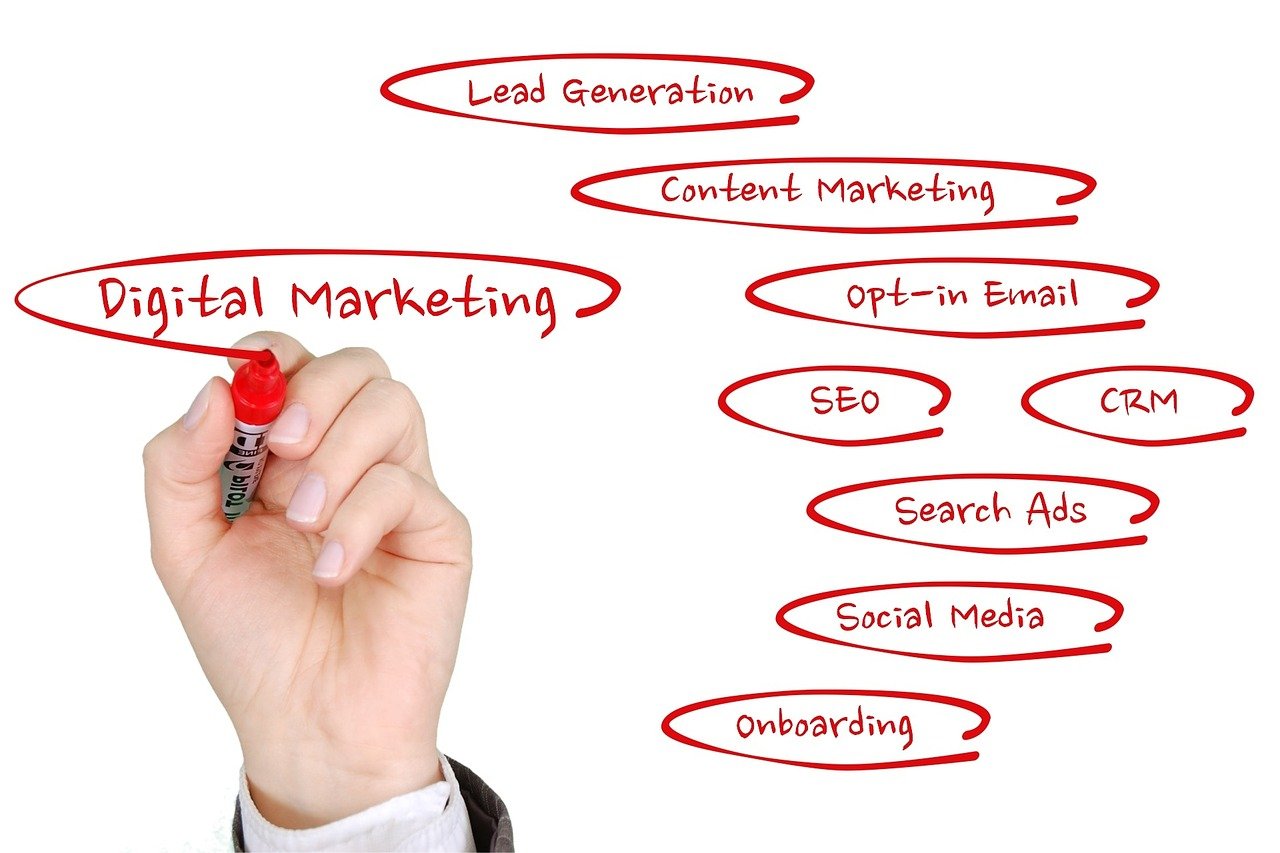Understanding the key components of digital marketing strategies
|
IN BRIEF
|
Digital marketing plays a crucial role in today’s business landscape, making it essential to grasp its fundamental components. A successful digital marketing strategy is built on several core elements that work in harmony to enhance brand visibility and drive growth. Key components include search engine optimization (SEO), content marketing, social media engagement, and email marketing, among others. By understanding these elements, businesses can develop a robust plan that not only reaches their target audience but also fosters meaningful connections and encourages customer loyalty. With the right strategies in place, organizations can leverage the power of digital channels to achieve their marketing goals effectively.

Key Components of a Successful Digital Marketing Strategy
A successful digital marketing strategy encompasses various essential components that work together to enhance a brand’s online visibility and engagement with its target audience. To begin with, it is crucial to start with comprehensive research to understand market trends, audience behavior, and existing competition. This foundational knowledge enables businesses to set SMART goals—meaning Specific, Measurable, Achievable, Relevant, and Time-bound objectives—that guide their overall strategy.
Another important element is having an engaging and responsive website, which serves as the primary platform for customer interaction. A well-designed site optimized for search engine optimization (SEO) increases visibility and traffic organically. Additionally, incorporating content marketing strategies ensures the creation of valuable and relevant content that resonates with the audience, ultimately driving engagement and conversions.
Social media marketing plays a pivotal role by allowing brands to connect with their audience directly, fostering community and engagement. Furthermore, leveraging email marketing campaigns can maximize reach and retention by delivering personalized content to subscribers. Lastly, paid advertising strategies, including pay-per-click (PPC) and programmatic advertising, expand your marketing reach and drive targeted traffic effectively.

Key Components of a Successful Digital Marketing Strategy
In today’s digital landscape, having a well-defined digital marketing strategy is paramount for businesses seeking to thrive online. A successful strategy encompasses several critical components. First, it begins with comprehensive research to understand the target audience and market trends. This foundational step enables businesses to tailor their marketing efforts effectively. Next, setting SMART goals—Specific, Measurable, Achievable, Relevant, and Time-bound—ensures that the marketing initiatives remain focused and results-driven.
Another essential element is maintaining an engaging, responsive website that enhances User Experience. A well-designed website is not only visually appealing but also easy to navigate, which can significantly impact visitor retention and conversion rates. Moreover, incorporating components such as Search Engine Optimization (SEO) and content marketing is crucial for increasing online visibility and driving organic traffic. SEO techniques, including understanding keyword positioning and analyzing SERP performance, vastly improve the chances of a brand being discovered online.
Social media marketing and email marketing campaigns also play pivotal roles in this mix. They help businesses engage directly with their audience, creating a sense of community and loyalty. Furthermore, investing in digital advertising campaigns can provide additional visibility and reach, ensuring that the marketing efforts resonate with potential customers.
All these components work symbiotically. For example, while a website captures visitors, engaging content drives interactions, and effective social media strategies amplify the reach. To further enhance effectiveness, understanding the importance of user experience is vital; a poor user experience can lead to higher bounce rates and lost opportunities. Click-through rates (CTR) often depend on how well these components align to create a seamless journey for potential customers. The synergy among these elements is what drives a digital marketing strategy towards success.
Elements of a Successful Digital Marketing Strategy
Key Components to Consider
Developing an effective digital marketing strategy requires a comprehensive approach. First, performing detailed research is crucial in understanding your target audience and the competitive landscape. This allows for the formulation of specific, measurable, achievable, relevant, and time-bound (SMART) goals that drive success. For example, a company may aim to increase website traffic by 30% in three months through targeted content efforts and SEO enhancements.
Next, creating an engaging and responsive website is essential. A well-designed site not only attracts visitors but also keeps them engaged, enhancing user experience and reducing bounce rates. Proper web design integrates SEO practices that improve visibility in search engine results, ensuring that your content reaches the right audience.
- Search Engine Optimization (SEO): Implementing a comprehensive SEO strategy will enhance your site’s discoverability, driving organic traffic to your platform.
- Content Marketing: Producing high-quality, valuable content helps in establishing authority and engages potential customers effectively.
- Email Marketing: Engaging customers through personalized emails can lead to improved customer retention and increased sales conversions.
- Social Media Marketing: Leveraging social platforms to connect and interact with your audience can significantly boost your brand’s visibility.
Moreover, exploring paid advertising, mobile marketing, and the efficiency of various online campaigns is necessary for optimizing the overall strategy. Each element should be tailored and executed with the goal of enhancing your business’s online presence and achieving significant returns.

Key Elements of a Successful Digital Marketing Strategy
To develop a successful digital marketing strategy, several critical components must be incorporated to achieve desired outcomes. Understanding the foundational aspects is essential for establishing a strong online presence.
Firstly, conducting comprehensive research plays a vital role. It allows businesses to identify their target audience and understand market trends, leading to more informed decision-making.
Setting SMART goals—Specific, Measurable, Achievable, Relevant, and Time-bound—ensures that marketing efforts are aligned and focused on achieving measurable success.
Having an engaging and responsive website is paramount, as it serves as the central hub for digital marketing activities. User experience significantly impacts visitor retention and conversion rates.
Moreover, incorporating search engine optimization (SEO) into the strategy enhances visibility on search engines, improving organic traffic. Content marketing is equally pivotal, as it establishes authority and builds trust with the audience through valuable information.
Furthermore, leveraging social media marketing allows for direct engagement with potential customers, fostering relationships and community building. Effective email marketing campaigns can also nurture leads, offering personalized communication.
Utilizing pay-per-click (PPC) advertising and programmatic advertising can amplify reach and generate leads efficiently, complementing organic efforts.
Ultimately, the integration of these elements creates a comprehensive digital marketing plan that drives brand awareness and enhances customer engagement.

To establish a successful digital marketing strategy, it is crucial to understand its core components. Comprehensive research allows businesses to gather insights about their target audience and market trends, paving the way for informed decision-making. Setting SMART goals ensures that objectives are specific, measurable, attainable, relevant, and time-bound, guiding the marketing efforts effectively.
A responsive website with engaging content acts as the foundation of an online presence, while a solid SEO strategy enhances visibility on search engines. Moreover, integrating email marketing and social media marketing facilitates direct communication with audiences, helping to build brand loyalty and engagement. The incorporation of pay-per-click advertising further supports visibility and drives immediate traffic to the business.
Ultimately, mastering these elements enables businesses to create a robust digital marketing plan that not only promotes products and services but also resonates with potential customers, fostering long-term relationships and driving growth.












Post Comment